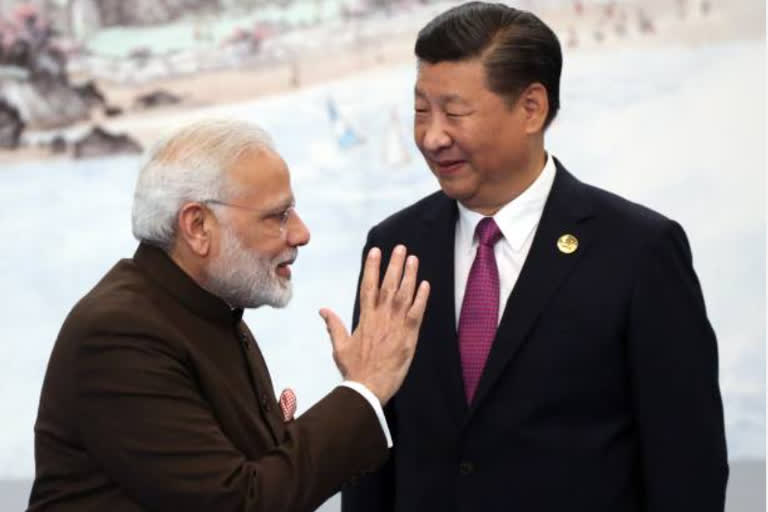New Delhi: The ongoing India-China border tensions may not have any immediate impact on the bilateral trade relations, according to experts.
Experts, however, pointed out that if the situation aggravates further then it could affect bilateral trade relationships.
"I do not see any impact on the bilateral trade relations due to the current border tensions between the two key trading partners," Federation of Indian Export Organisations (FIEO) President S K Saraf said.
He added that there are huge trade opportunities for businesses of both the countries to explore in each others' market.
Ludhiana-based Hand Tools Association President Subhash Chander Ralhan said that China is a big market for Indian exporters and there is a need to look at ways to boost exports to the neighbouring country to bridge the widening trade deficit.
"Putting any kind of restrictions on imports from China may impact our exports. But if the tensions at the borders would get aggravated then it may impact the bilateral trade relations," Ralhan added.
Apparel Export Promotion Council of India (AEPC) Chairman A Sakthivel also hinted that trade may take a hit if both the countries would not be able to resolve the issues soon.
Read more: Amid India border clash, China faces economic woes
"If the situation get worsened then there will be a problem. We do not export apparel in huge numbers but we import lot of fabrics from China," Sakthivel said.
Biswajit Dhar, a professor of economics at Jawaharlal Nehru University, said putting any kind of trade restrictions on China may have implications for India.
"Our dependence on China is huge on several critical products likeAPIs (active pharmaceutical ingredients). There are no serious alternatives or market for us for those critical products and situation would not change in a day," Dhar said.
He added that increasing tariffs or import duties will only burden domestic consumers.
"The only solution left is to strengthen domestic manufacturing in critical sectors," he said.
The Indian Army on Tuesday said that 20 Army personnel, including a Colonel, were killed in the clash on Monday night, in the biggest ever military confrontation between the two armies in over five decades.
The Indian and Chinese armies are engaged in the standoff in Pangong Tso, Galwan Valley, Demchok and Daulat Beg Oldie in eastern Ladakh.
The standoff has stirred an anti-China sentiment in the country leading to protests at some parts. Protesters and some trade bodies like CAIT have called for boycott of Chinese products in protest to border standoff.
India's exports to China stood at USD 15.54 billion during April-February 2019-20, while imports aggregated at USD 62.38 billion during the same period. Exports and imports in 2018-19 were USD 16.75 billion and USD 70.32 billion respectively.
India's main imports from that country includes bulk drugs/APIs, electronic items, electrical equipment, organic chemicals, plastics and fertilizers, while exports include fish, crustaceans, molluscs, cotton, certain chemicals, plastics, electrical machinery, coffee, tea, spices, precious stones, copper, mineral fuel, grapes, beet sugar, salt; sulphur, plastering materials, and lime.
In April, the government made its prior approval mandatory for foreign investments from countries that share land border with India to curb "opportunistic takeovers" of domestic firms following the COVID-19 pandemic, a move which will restrict FDI from China.
Countries which shares land borders with India are China, Bangladesh, Pakistan, Bhutan, Nepal, Myanmar, and Afghanistan.
(PTI Report)



